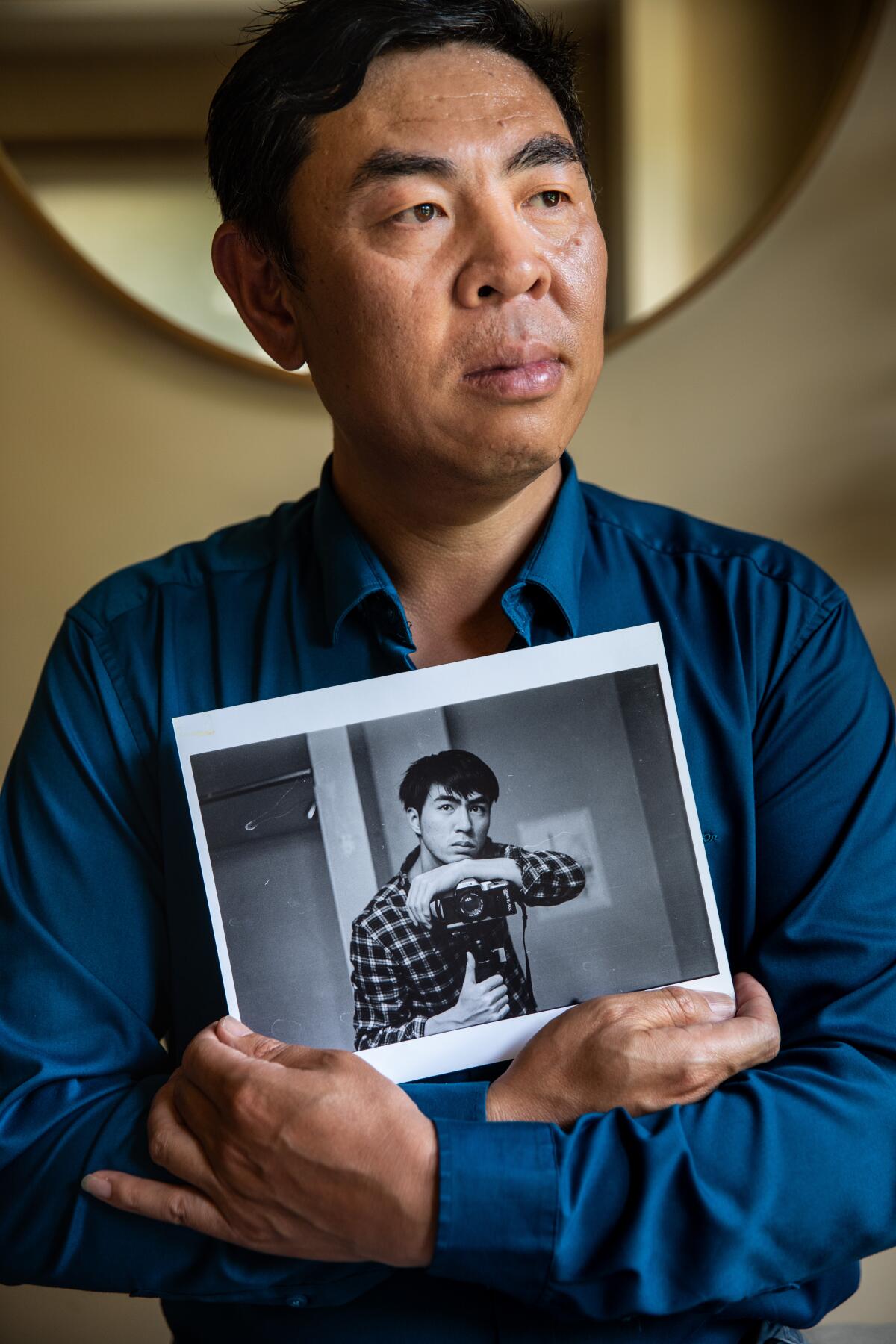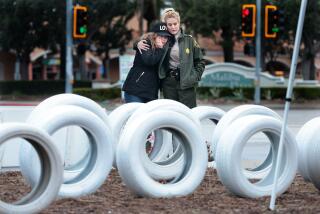Family of cinematographer killed during filming sues USC, students

The family of a cinematographer killed on a USC student film shoot in April has filed a wrongful-death lawsuit against the prestigious school and two of its students.
The parents of Peng Wang, a Chapman University student who died after the off-road vehicle he was in rolled while traversing the Imperial Sand Dunes Recreation Area, alleged the university had sanctioned the project and knew that the team would be using off-road vehicles and shooting in the desert, according to a lawsuit filed in Los Angeles County Superior Court on Monday.
The family is seeking unspecified damages. “We are honored to represent Peng “Aaron” Wang’s parents, and look forward to demonstrating that USC needs to improve the way it manages student films in order to adequately protect young people like Aaron from injury or death,” Brian Strange, lawyer to the family said.
.
USC officials previously suggested that the students had gone rogue in making the short film “Finale,” that the school was unaware of any requested or granted approvals to use off-road vehicles and shoot in a remote expanse of desert that is three hours and more than 230 miles from the USC campus.
“USC was not responsible for Mr. Wang’s tragic death. We will be sharing the facts about our robust safety procedures and safety record in court,” USC said in an emailed statement Tuesday.
Felix Woo and Jason Liang, lawyers for USC students Biangliang Li and Ting Su, respectively, had no comment.
New details have emerged about the USC film production where a student died in an off-road vehicle crash.
The 29-year old’s death was a shock to the tight-knit student communities at both Chapman and USC, where memorials for the young Chinese cinematographer were held earlier this year. His death was yet another reminder of the dangers of film shoots and came months after Halyna Hutchins, a rising cinematographer, was accidentally shot and killed by actor Alec Baldwin during rehearsals on the set of the movie “Rust.”
“Safety should trump everything on student film projects made in fulfillment of USC class requirements,” the family said in their suit. “USC has a responsibility to return the people who make its films back to their families intact. USC is liable for its negligent failure to exercise control over, and to ensure safety on, the ‘Finale’ student film project. That negligence resulted in [Wang’s] death and the ensuing damages for which plaintiffs bring suit to recover.”
Following Peng Wang’s death, his father, Hualun, traveled to Southern California for memorial services this summer and to find out more about his son’s accident.
Wang, who went by the name of Aaron on campus, died just weeks before the end of his master’s in fine arts course. He was awarded the degree posthumously by Chapman, which is in Orange County. His remains were finally laid to rest in Chengdu, the capital of southwestern China’s Sichuan province, according to a death certificate. The cause of death was listed as blunt neck trauma as a result of the off-road accident.
Wang had joined the USC students to help them complete one of three films they were making as part of a directing class at the film school, according to the suit. The short film called “Finale” was about the hallucinations and death of a man in the desert and was scheduled to film in the Glamis Dunes east of Brawley, Calif. The accident happened around 1 p.m. on April 15, the first day of filming, when the crew, including Wang, were traveling across the sand dunes, according to the complaint.
The driver, Li, lost control of the vehicle, which rolled down one of the dunes, the suit stated. Wang, who was sitting in the rear of the vehicle, had been wearing a helmet but not been belted into his seat and was partially ejected during the accident, according to a police report.
“An experienced driver, or one with proper training, familiar with the dunes would not have made this obvious error,” the family wrote in the court filing.
Su had to help Wang put on his helmet because he was unfamiliar with the gear used when traveling off-road, according to the lawsuit. “This should have placed Su and Li on heightened alert regarding [Wang’s] lack of familiarity with the proper operation and safety protocols for the [off-road vehicle],” the family said in the suit.
At the time of the accident, USC said student films shooting more than 50 miles from campus or involving all-terrain vehicles require specific approvals, but none had been requested or obtained.
However, in their lawsuit, the family noted that USC’s film school had approved a “student certification” for the film that was submitted on April 5, assigning it a production number.
The budget for the film listed charges for the rental of an off-road vehicle, the use of lodging and an RV, and that the film was shooting in the desert. Wang was listed as director of photography.
“In other words, the location of the shoot, and the intentions of the students in regard to filming, were open and obvious to the faculty and staff at USC who were in charge of approving the project,” Peng Wang’s family wrote in their filing.
California Highway Patrol officers previously recommended that the Imperial County district attorney bring charges of involuntary vehicular manslaughter against the driver, Li.
Mario Vela, senior deputy district attorney, told The Times on Tuesday that he is not going to file charges. “I have reviewed the case, and I found that the suspect did not commit any criminal act,” Vela said in an interview. “This was just a terrible accident that unfortunately resulted in a tragedy, but there was no criminal offense committed.”
More to Read
Inside the business of entertainment
The Wide Shot brings you news, analysis and insights on everything from streaming wars to production — and what it all means for the future.
You may occasionally receive promotional content from the Los Angeles Times.












